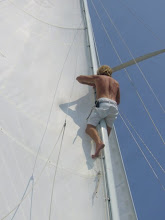In 1982, nations concluded negotiations on the United Nations Convention on the Law of the Sea (henceforth UNCLOS). UNCLOS provides essential guidelines for maritime law and operations and supersedes the earlier doctrine of freedom of the seas and continental shelf claims. In particular, it provides specific environmental protections, preserves the freedom of navigation, establishes clear guidelines for businesses that depend on the sea and furnishes a respected dispute resolution mechanism. Today, 155 nations have ratified UNCLOS, with the United States a notable exception, though it supports and follows the treaty in principle. UNCLOS can help to cover some basic issues raised in the Arctic and provide a framework under which to delineate sovereign geographic claims based on documented geologic evidence. However, the Arctic also raises issues not covered by UNCLOS, including how to motivate the creation of a common pooled resource such as global ship monitoring systems on an international scale.
This paper addresses the question of how to create an effective, equitable and sustainable resource management regime in the Arctic. Can UNCLOS be adapted to solve the unique problems of the region? Can domestic regimes fill the hole? Or is a cooperative legal framework necessary? The issues raised by increased human activity in the Arctic are significant. Canada, for instance, has legal obligations to the Inuit people. Fishing on the Bering Sea is already a billion dollar industry; with increased ice melt, fishing boats will push further north. UNCLOS fails to address the significant problem of ballast water discharge, which is the number one source of marine invasive species in the U.S. and might significantly damage ecosystems proximate to Arctic ports in the future. Without significant emergency preparedness and response capabilities mandated, an Arctic oil spill could spell devastation for the region's unique species. Security concerns, highlighted when a Russian freight plane landed in the Canadian port town of Churchill, loaded a helicopter and landed hours later in a region of Russia known for organized crime, are serious. These, of course, are only a sampling of the problems that increased Arctic activity presents.
In his seminal work “The Logic of Collective Action”, Mancur Olson contends that large and diverse groups typically do not attain their common goals because major actors bear much of the cost burden of collective benefits in group settings and therefore have less incentive to share the benefits. Unlike the Antarctic, the Arctic falls largely under the domestic regimes of sovereign nations and is not a commons area. However, Olson’s concept of a tragedy of the commons still applies in a variety of ways in the Arctic. Indeed, there is significant incentive for smaller nations to free ride on issues ranging from safety and security to environmental protection without the provision of selective incentives such as decision-making. Larger nations such as Russia, meanwhile, have often proven only grudging participants in the Arctic community because it is not in their best interest to bear the cost of services, such as search and rescue, that other nations will later consume. While progress focused on the sustainable development of the region has been slow, however, there is reason to believe that the Arctic nations can continue to move forward in this respect.
Indeed, in 1996 the Arctic nations came together to form the intergovernmental Arctic Council with the Ottawa Declaration. The Arctic Council's mission is to “provide a means for promoting cooperation, coordination and interaction among the Arctic States, with the involvement of the Arctic indigenous communities and other Arctic inhabitants on common arctic issues, in particular issues of sustainable development and environmental protection in the Arctic.” This paper investigates whether the mandates of the Arctic Council and its working groups, composed of the eight Arctic nations, namely Canada, Denmark, Finland, Iceland, Norway, the Russian Federation, Sweden and the United States, should be institutionalized and whether the Arctic needs a global environmental protection regime to ensure sustainable and responsible development. Given the current state of affairs, is such a solution even possible?
03 October 2010
Subscribe to:
Post Comments (Atom)




No comments:
Post a Comment